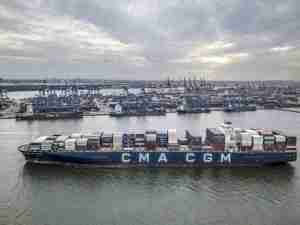Pittsburgh-area companies that ship containerized cargo will soon be able to utilize a new cost-effective, river-based transportation alternative. CSG Company, LLC, a comprehensive industrial supply chain service provider, and the Port of Pittsburgh Commission (PPC) have announced the start.
Buddy Johns, President of CSG, announced that the Container-on-Barge (COB) service to the Port District will start May 2.
"We are excited about the opportunities the COB service opens for many more companies in the Upper Ohio River Valley," says Buddy Johns, president of CSG. The service will operate twice each month from Pittsburgh to New Orleans and back to Pittsburgh.
Johns pointed out that crowded ports on both coasts and rising fuel costs are moving more traffic to New Orleans, where the Napoleon Container Yard was opened last year, and Biloxi, both with easy access to the Mississippi and Ohio river systems.
According to James McCarville, executive director of the PPC, "CSG has done its homework, is prepared to bring this service here for the long run and will have economic development impacts for the region for the future."
"Traditionally, barge service was appropriate for companies wanting to ship as much as 800 tons of product, such as coal, steel, plastics and other raw materials. Recognizing we had smaller shippers in the region, the PPC conducted a COB Pre-Feasibility Study and identified all of the opportunities and pitfalls." He noted that CSG was very methodical in planning and launching this new service.
COB loads are measured in teus, the capacity of a standard container that people now see moving on the highway or railway. About 60-70 of these containers can fit on a barge, said McCarville.
CSG has activated the region's only Third-Party Foreign-Trade Zone (FTZ) for its Leetsdale Terminal. Established by the federal government in the 1930s, FTZs are areas within the US that the government considers outside the country or at minimum, outside US Customers territory. For shippers, the advantages of an FTZ are primarily financial:
No duty is paid to the US government until the merchandise leaves the FTZ and enters US commerce. When products are manufactured in the FTZ from imported materials, duties are paid only on the amount of material used in the finished product, rather than the total amount, including scrap.
McCarville noted that the availability of COB service will open the way for the Pittsburgh District to serve as a major distribution hub and will make the river front property more attractive for warehousing and light manufacturing. "COB service is also especially appropriate for very heavy shipments that have been traditionally difficult to haul over land, such as industrial chemicals and forest products."








